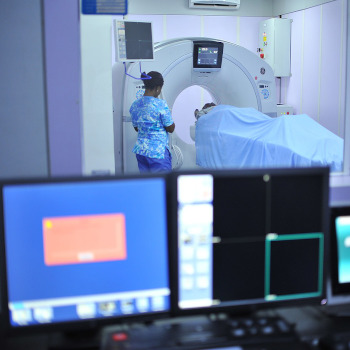
Last year, healthcare was the number one victim of ransomware attacks. According to an Arcserve study, two thirds of those affected paid the ransom.
An international, independent study by Arcserve focused on the healthcare sector's structures, practices and experiences when it comes to data protection, data recovery and protection against ransomware attacks. The study results illustrate that there are misconceptions in the healthcare sector about how organizations need to protect themselves from cyberattacks and how they can back up and restore their data in an emergency.
The most important results of the study:
Frequency: Compared to all other industries, healthcare was the most affected by ransomware attacks.
- 45 percent of healthcare respondents have been affected by a ransomware attack in the last 12 months.
Effects: High ransom demands, with no guarantee of successful recovery.
- 83 percent of ransom demands were between $100.000 and $1 million
- 67 percent of those affected paid ransoms
- 45 percent of facilities were unable to fully recover their data following ransomware attacks
Against this background of threats, obvious weaknesses in prevention became apparent:
- 82 percent of healthcare IT departments do not have an up-to-date disaster recovery plan
- Nearly 75 percent of respondents believe data backed up to a public cloud is more secure than data stored locally
- More than 50 percent of respondents incorrectly assumed that cloud providers were responsible for restoring their data
About the study conducted by Dimensional Research
1.121 IT decision makers worldwide from companies with 100 to 2.500 employees and at least 5 TB of data volume took part in the survey. All participants either had budget responsibility or had technical decision-making authority for data management, data backup and storage solutions. The survey was conducted in Australia, New Zealand, Brazil, France, Germany, India, Japan, Korea, United Kingdom, United States and Canada (North America).
More at Arcserve.com
About Arcserve Arcserve offers exceptional solutions to protect the valuable digital assets of companies that require complete and comprehensive data protection. Arcserve was founded in 1983 and is the world's most experienced provider of business continuity solutions for securing multigenerational IT infrastructures with applications and systems in any environment, on site and in the cloud. Companies in over 150 countries around the world rely on Arcserve's highly efficient, integrated technologies and expertise to reduce the risk of data loss and prolonged downtime while reducing the cost and complexity of data backup and recovery by up to 50 Reduce percent. Arcserve is headquartered in Minneapolis, Minnesota with numerous locations around the world.
